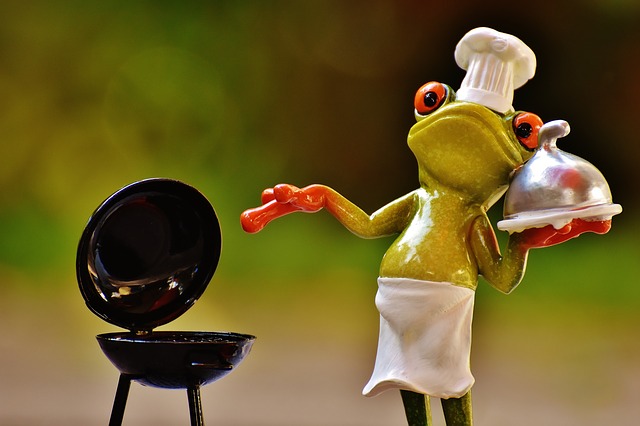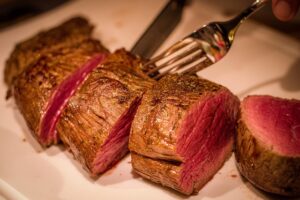HOW TO GET YOUR GRILL READY FOR THE BARBECUE SEASON AFTER THE WINTER
After a long winter, particularly if you’re not a serious griller, your barbeque has probably been hibernating in a garage or basement for many months. Prior to making a beeline for the butcher and a package of T-bones, there are a few basic things you need do to ensure that your barbeque is in peak cooking shape. Let’s go to work with a couple of beers in hand.
1. Make sure you have all of your cleaning supplies organized.
You wouldn’t cook in a filthy kitchen, so why would you grill on a filthy barbecue?! You will want the following materials in order to thoroughly sterilize and clean your grill:
You’ll also need a brush for cleaning your cooking grids, a small bucket of hot water, dish soap, an air venturi brush, a 1/16″ drill bit (which came with your grill when you initially bought it), new grease cups, a spatula, stainless steel cleaner, and some fine sandpaper, among other things.
MAKE SURE TO SCRUB YOUR BARBECUES
Every nook and crevice of your grill will benefit from the cleaning materials indicated above.
Remove the cooking grids and sear plates first, so that you can get the burners up and running. To clean the burners thoroughly, it is best to remove them from the grill and scrub them separately.
To clean the tops of the burners, use a wire brush similar to the ones you would use to clean your cooking grids. Pass the brush through the venturi to remove any obstructions, then brush the tops of the burners using a wire brush.
Examine each and every one of the burner ports to make sure they are all open after the burners have been thoroughly cleaned. It may be necessary to use the 1/16″ drill bit to unclog some of the holes.
Grease should be scraped off the interior of the base and down towards the drip pan using a spatula.
Make a point of removing the drip pan and thoroughly cleaning it, as well as replacing the tin foil grease collector. This area may be cleaned by soaking it in hot, soapy water.
Cleansing searing plates and cooking grids should be done with hot, soapy water or by placing them in the dishwasher on the delicate cycle. When cleaning the base and sides of the grill, hot soapy water works wonders to remove oil splatters and discolouration.
Likewise, our porcelain enameled and powder coated products are subject to the same restrictions.
Using a soft cloth, rub in some stainless steel cleaner/protector/polish, making sure to follow the grain of the stainless steel. Make sure to follow all of the package directions while doing so!
3. CHECK ALL HOSES AND FEED TUBES FOR DAMAGE.
It’s a good idea to visually examine all of your grill’s hoses and feed tubes once you’ve finished cleaning them up. Look for any crimps, scratches, or punctures on the surface of the object.
Replace any broken items as soon as they are discovered. If you have any questions, please contact your local Napoleon Dealer who would be delighted to assist you.
4. Inspect the grill for leaks and do a thorough inspection.
When your grill has been in storage for an extended period of time or when you are replacing any of the components on your grill, it is recommended that you run a leak test on it.
5.Check all of the ignitor components.
Replace the burners once you’ve cleaned your barbecue. If your ignition is powered by batteries, you should replace them. It is recommended that old batteries be replaced with fresh ones when using battery ignitions.
Double-check all electrode leads and make sure the electrode tips are clean if you are using a JETFIRETM Ignition System. Examine them to ensure that there is no oil or rust buildup on them; if there is, you may lightly polish them with fine-grit sandpaper.
After that, it’s time to start grilling. When you say you’re going to grill something, what exactly do you mean?
WHAT TO DO IF YOU OVERCOOK FOOD BBQ GREASE FIRES AND HOW TO PREVENT THEM THE BEST WAY TO INCLUDE PEARS IN YOUR BARBEQUE Best Practices For Storing Sausage Casings




